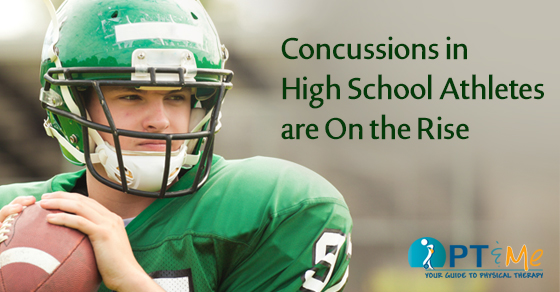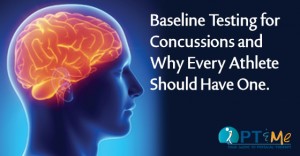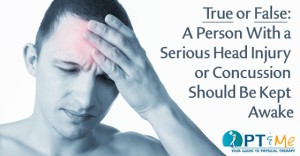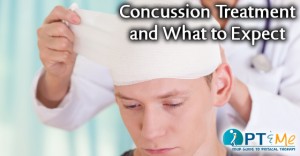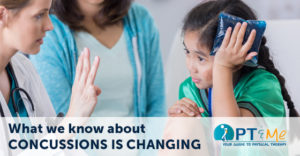Concussions in high school athletics have been increasing dramatically. According to the National High School Sports-Related Injury Surveillance Study, in the 2005-2006 school year 9% of high school athletic injuries were diagnosed as a concussion/head injury. The 2013-14 school year showed concussions to be at 21.9%. With this kind of increase it’s important to be aware of the warning signs and how to respond to them.
What is a concussion?
A concussion is a type of brain injury that changes the way the brain normally works. Concussions can have a more serious effect on a young,developing brain and need to be addressed correctly.
What are common concussion signs and symptoms?
You can’t see a concussion. Signs and symptoms of concussion can show up right after an injury or may not appear or be noticed until hours or days after the injury. It is important to watch for changes in how your child or teen is acting or feeling, if symptoms are getting worse, or if s/he just “doesn’t feel right.” Most concussions occur without loss of consciousness. If your child or teen reports one or more of the symptoms of concussion listed below, or if you notice the symptoms yourself, seek medical attention right away. Children and teens are among those at greatest risk for concussion.
DANGER SIGNS
Be alert for symptoms that worsen over time. Your child or teen should be seen in an emergency department right away if s/he has:
- One pupil (the black part in the middle of the eye) larger than the other
- Drowsiness or cannot be awakened
- A headache that gets worse and does not go away
- Weakness, numbness, or decreased coordination
- Repeated vomiting or nausea
- Slurred speech
- Convulsions or seizures
- Difficulty recognizing people or places
- Increasing confusion, restlessness, or agitation
- Unusual behavior
- Loss of consciousness (even a brief loss of consciousness should be taken seriously)
What should I do if my child or teen is showing concussion signs?
Help them take time to get better. If your child or teen has a concussion, her or his brain needs time to heal. Your child or teen may need to limit activities while s/he is recovering from a concussion. Exercising or activities that involve a lot of concentration, such as studying,working on the computer, or playing video games may cause concussion symptoms (such as headache or tiredness) to reappear or get worse. After a concussion,physical and cognitive activities—such as concentration and learning—should be carefully managed and monitored by a health care professional.
To see the full report of high school injuries click here
For more information visit www.cdc.gov/concussion
Additional articles from PTandMe about concussions can be found here:

